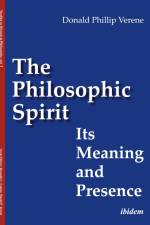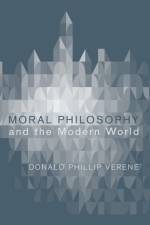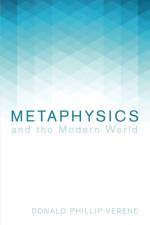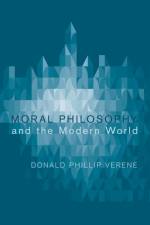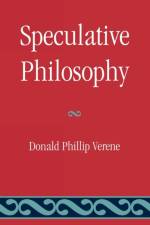von Donald Phillip Verene
40,00 €
This work raises for the contemporary reader the ancient and abiding question of the nature and meaning of human virtue. In Part 1, it draws upon Plato, Aristotle, and Cicero and the works of Renaissance Christian humanists who were influenced by them, such as Pico, Vives, and Erasmus. The moral act guided by the cardinal virtues and the good is seen as the key to human happiness and the formation of character. Character is the basis for the pursuit of self-knowledge, decorum, and dignity, which properly guide human affairs.Part 2 takes up Hegel''s principle of the labor of the negative as applied to three phenomena of modern life: the presence of terrorism, the personality of the psycho-sociopath, and the problems of the technologically dominated life of the modern person. These are the most powerful impediments to the good life in the modern world and pose problems to which the ethical doctrines of utilitarianism and the categorical imperative provide an insufficient response. To confront these phenomena, we are led back to the classical conception of the role of prudence or practical wisdom as the foundation of ethical life.""Verene brings to life the truthfulness of an ancient and constant wisdom, lighting up more perennial perspectives on things human and divine, as well as current ethical perplexities about terrorism, psycho-sociopathy, and the technological person. The work singularly embodies the ideal held in highest regard by Renaissance Italian humanism, and of which Verene himself is a great admirer: ''la sapienza che parla,'' or ''wisdom speaking.''""--William Desmond, Villanova University""Moral Philosophy and the Modern World offers a challenging and original reflection on the nature of morality. Its argument is broadly philosophical and rooted in ancient and Renaissance humanism. It rejects a moral philosophy based on utilitarian or deontological principles, notions of diversity, or social justice and favors a moral philosophy based on prudence and the ideal of justice. . . . It is a provocative read for anyone interested in moral philosophy.""--Victoria Wike, Loyola UniversityDonald Phillip Verene is Charles Howard Candler Professor of Metaphysics and Moral Philosophy and director of the Institute for Vico Studies at Emory University. His previous books include Knowledge of Things Human and Divine (2003), Hegel''s Absolute (2007), Speculative Philosophy (2009), and The Origins of the Philosophy of Symbolic Forms (2011). He has been Visiting Fellow at Oxford University and is Fellow of the Accademia Nazionale dei Lincei, Rome.

